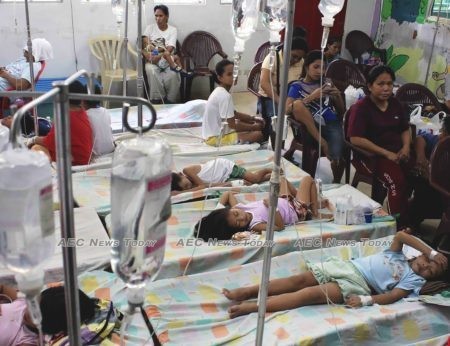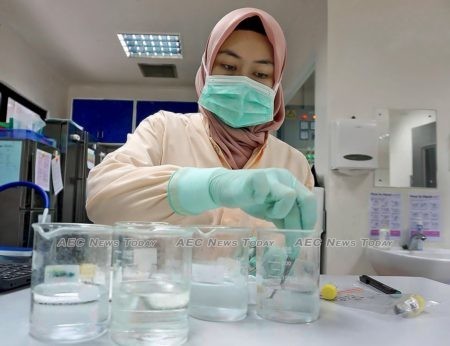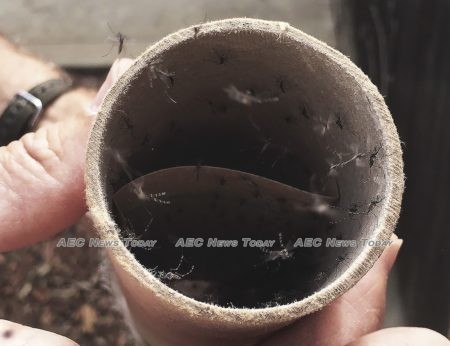
The way it works is illustrated in the video from Singapore above, where the Wolbachia programme has progressed to the second phase, following a succesful phase one study.
Mosquitoes infected with the Wolbachia bacteria, a bacterium found across a range of insect species and harmless to humans and the environment, are released into the wild over a 15 week period effectively breeding mosquito-born diseases such as dengue, Zika, chikungunya, and yellow fever out of existence.
With eight years of data since the first field release of mosquitoes infected with Wolbachia in Australia, the Monash University, Australia-based World Mosquito Program (WMP) used this year’s American Society of Tropical Medicine and Hygiene (ASTMH) to outline its successes.
Tracing its origins to research conducted at the University of Queensland, Australia, in the 1980’s and a generous grant from the Bill and Melinda Gates Foundation, the conference heard that there had not been a single outbreak of dengue in the release area in the past five years.
In Indonesia, where Wolbachia-infected mosquitoes were released in a community near Yogyakarta city in 2016, dengue infections were slashed by 76 per cent.

A similar decrease was found in the Vietnam city of Nha Trang, the meeting was told, while in Niterói city, Brazil, dengue infections fell by 79 per cent and chikungunya by 75 per cent.
Speaking to SciDev.net, Cameron Simmons, an expert in dengue epidemiology at the WMP, said “this is really about transforming the mosquito.
“What we do is solve the problem of those mosquitoes being transmitters of these medically important diseases.”
According to Mr Simmons, the results of the Wolbachia trials have been extremely encouraging, highlighting “the potential of this approach to fight dengue and related mosquito-borne diseases at a global scale”.
Sex the secret to eradicating dengue
There are several ways that Wolbachia can be deployed. If only male mosquitoes infected with Wolbachia are released into the wild the eggs of any females they mate with will not hatch, leading to a breading out of mosquitoes in the location and the loss of the ongoing protection provided by mosquitoes infected with Wolbachia.
If both male and female Wolbachia infected mosquitoes are released the benefits are more long term.

If a male Wolbachia infected mosquito mates with a female mosquito also infected with Wolbachia all of their children will be infected with Wolbachia and continue to spread the bacteria.
Similarly, if a female mosquito infected with Wolbachia mates with a male mosquito who is not infected, all of her eggs will hatch, but they will all be infected with Wolbachia.
World Health Organisation (WHO) data shows that the number of dengue cases globally is on the rise, with the effects of the global climate crisis helping drive infections as temperatures in previously cooler zones warm.
The Philippines Department of Health (DOH) says dengue cases there are up 92 per cent on last year, with more than 402,000 confirmed cases up to November 16.
Global cost of dengue more than $9 bln
According to WHO estimates there are now some 390 million dengue infections per year, with only 96 million manifesting clinically. A 2016 report by the Schneider Institutes for Health Policy, Heller School for Social Policy and Management, Brandeis University, Massachusetts, USA of 2013 dengue data when there was just 58.4 million infections put the global cost of dengue at $8.9 billion.
While scientists want more years of study to see how long Wolbachia remains potent in wild mosquitto colonies before they sign-off on ditching short-term toxic chemicals, more progressive public health providers are finding the pathogen approach attractive.
Singapore and Malaysia turn to Wolbachia

Early this month, Singapore’s National Environment Agency (NEA) launched a S$5 million (US$3.67 mln) mosquito production facility to breed about five million Wolbachia-carrying Aedes aegypti mosquitoes a week as part of its efforts to counter the surge in dengue cases there. Some 15,000 dengue cases have been reported in Singapore this year, with 20 deaths.
Malaysia is another convert to pathogens over chemicals launching a “Wolbachia Malaysia” year, earlier this year. In a world-first both Aedes aegypti and Aedes albopictus mosquitoes have been infected and released, with the aim being to tackle mounting levels of Zika, chikungunya, and dengue. As of December 4 more than 120,800 cases of dengue had been recorded in Malaysia, with 164 deaths.
A paper by BMC Medicine published last September which examined the effectiveness of the Wolbachia release campaign in Yogyakarta city found: ‘Area-wide interventions, such as Wolbachia, that are deployed based on the area covered could protect people more efficiently than individual-based interventions, such as vaccines, in such dense environments’.
Meanwhile, in the Philippines where a poorly implemented dengue vaccination programme in April, 2016 has seen plummeting public confidence in all vaccinations, Health Secretary, Francisco Duque III is advising that the epidemic has plateaued.
Just to be on the safe side Filipinos (and visitors) are advised to follow the 4S strategy of: search and destroy mosquito breeding grounds; seek early consultation when symptoms appear; practice self-protection measures, such as wearing protective clothing; and say “yes” to fogging in hotspot areas. An investment in some Wolbachia mosquitoes might also be a good idea.
Feature video NEA Singapore
Feature photo Entomology Today
Related:
- Dengue cases up by 92% this year, reach 402,694 (Philippine Daily Inquirer)
- Bacteria-infected mosquitoes take bite out of deadly dengue (Ap)
- Bacteria-infected mosquitoes can’t transmit dengue (SciDev.Net)
Stella-maris Ewudolu
Between November 2010 and February 2012 she was a staff writer at Daylight Online, Nigeria writing on health, fashion, and relationships. From 2010 – 2017 she worked as a freelance screen writer for ‘Nollywood’, Nigeria.
She joined AEC News Today in December 2016.
Latest posts by Stella-maris Ewudolu (see all)
- Zoonotic crossover fear sees Vietnam ban (almost) all wildlife trade (video) – July 26, 2020
- Job & revenue losses: COVID-19 to hurt Asean airlines the most – July 24, 2020
- Philippines morning news for July 24 – July 24, 2020
- Philippines morning news for July 23 – July 23, 2020

